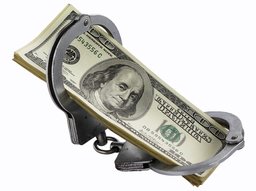Two bankruptcy petition preparers in Wisconsin are in big trouble with the Court, facing possible criminal charges. Jennifer Abbott, who is a disbarred attorney, was cited with contempt by a bankruptcy judge. The Court said that she has violated bankruptcy Court Orders repeatedly and she refused to obey a subpoena issued by the U.S. Trustee’s office. Abbot has also been convicted of felony theft for stealing from a client.
The second bankruptcy petition preparer, Gaynor Morrison, is in trouble for failing to appear in bankruptcy Court when ordered to do so. Also, he was alleged to have been overcharging clients and failed to return fees to clients after being ordered to by the Court.
Bankruptcy petition preparers are non-attorneys who help people file for bankruptcy. Courts and trustees often comment that the petitions or other required documents are flawed when drafted by a bankruptcy petition preparer. If this happens and the case gets dismissed without discharge, people could lose valuable assets or have to pay additional filing fees. Not all bankruptcy petition preparers are unprofessional, but it is best to have a licensed attorney with knowledge of the complexities of the Bankruptcy Code prepare your bankruptcy documents. To contact a Jacksonville Bankruptcy Attorney today, call 904-685-1200.
 Jacksonville Bankruptcy Lawyer Blog
Jacksonville Bankruptcy Lawyer Blog



 The first automobile company to come up with heated seating has filed for bankruptcy in it’s home country of Sweden. Although it began as an aircraft manufacturer, Saab entered the growing automobile market after World War II.
The first automobile company to come up with heated seating has filed for bankruptcy in it’s home country of Sweden. Although it began as an aircraft manufacturer, Saab entered the growing automobile market after World War II.  Jacksonville residents are facing some of the hardest times ever. With
Jacksonville residents are facing some of the hardest times ever. With  In the recent publication, “
In the recent publication, “ There’s not much that inspires us to act (or not act) than the threat of imprisonment. Collection agencies are using a new angle on collections that can lead to the arrest of unwitting debtors.
There’s not much that inspires us to act (or not act) than the threat of imprisonment. Collection agencies are using a new angle on collections that can lead to the arrest of unwitting debtors.  When filing for bankruptcy, it is very important to be very honest and disclose everything. If you do not, you risk having your bankruptcy denied, discharge revoked or even prison time in the worst case scenario. When you sign your bankruptcy documents, you are doing so swearing that they are true under penalty of perjury. If the trustee finds out that something you have in your schedules is incomplete or untrue, this will raise a red flag and the trustee will scrutinize your bankruptcy schedules even more.
When filing for bankruptcy, it is very important to be very honest and disclose everything. If you do not, you risk having your bankruptcy denied, discharge revoked or even prison time in the worst case scenario. When you sign your bankruptcy documents, you are doing so swearing that they are true under penalty of perjury. If the trustee finds out that something you have in your schedules is incomplete or untrue, this will raise a red flag and the trustee will scrutinize your bankruptcy schedules even more.